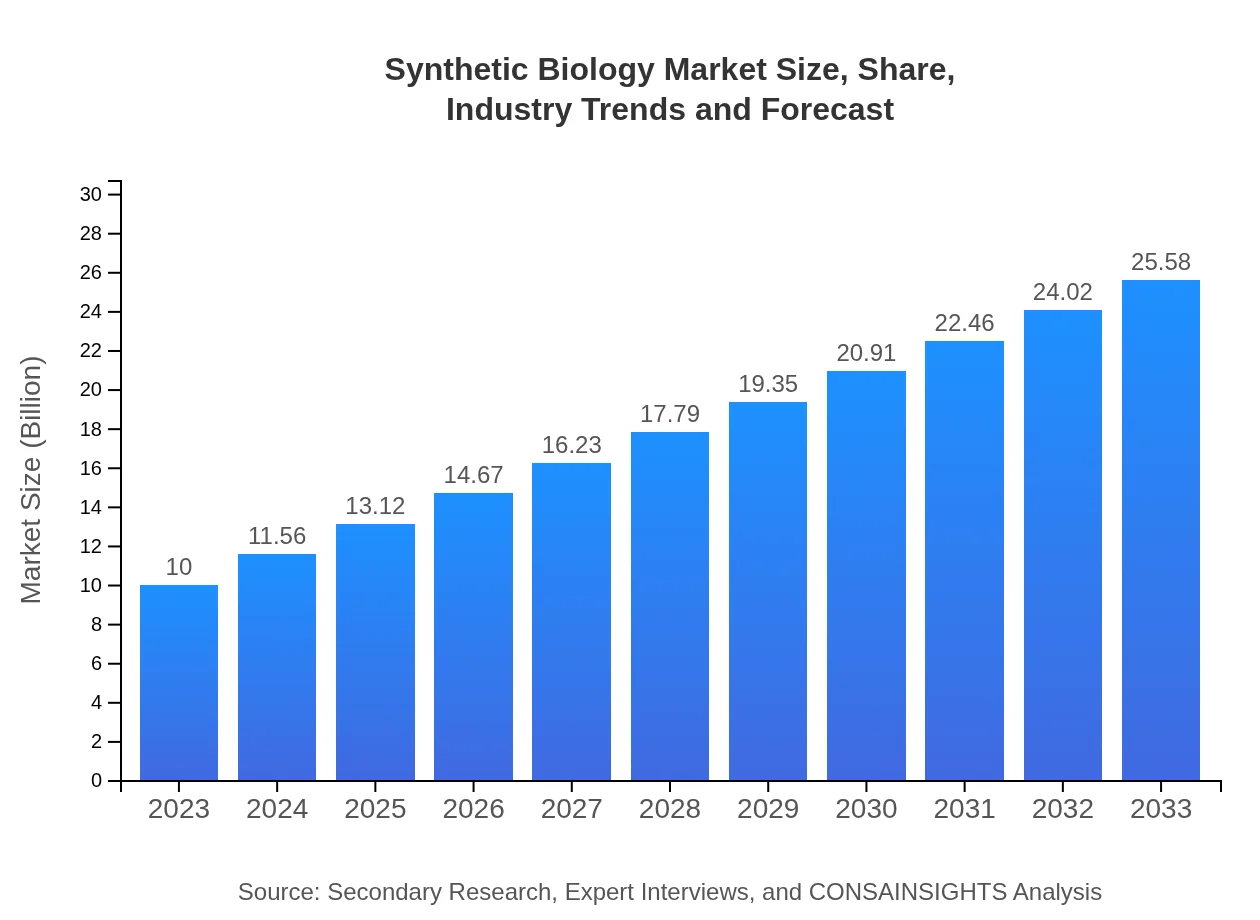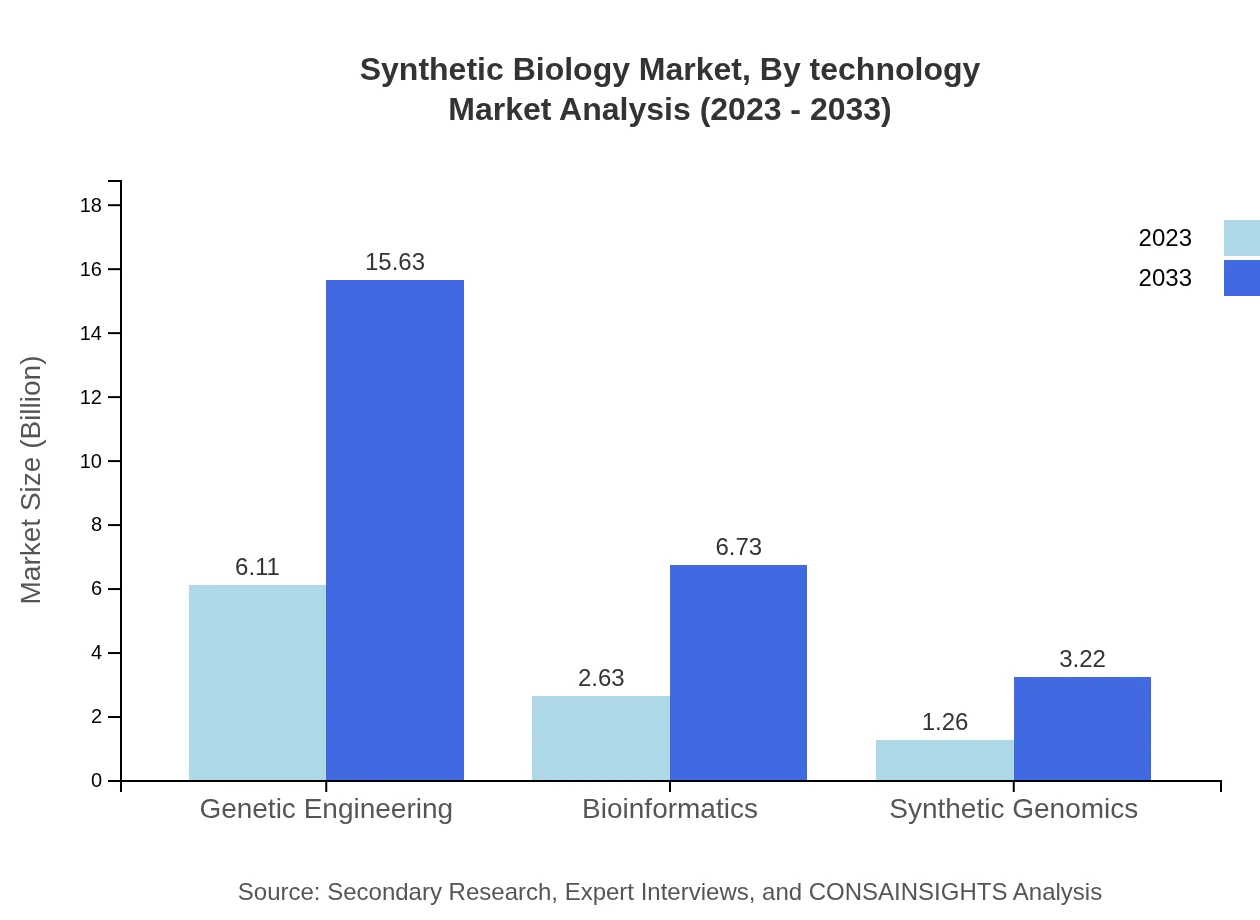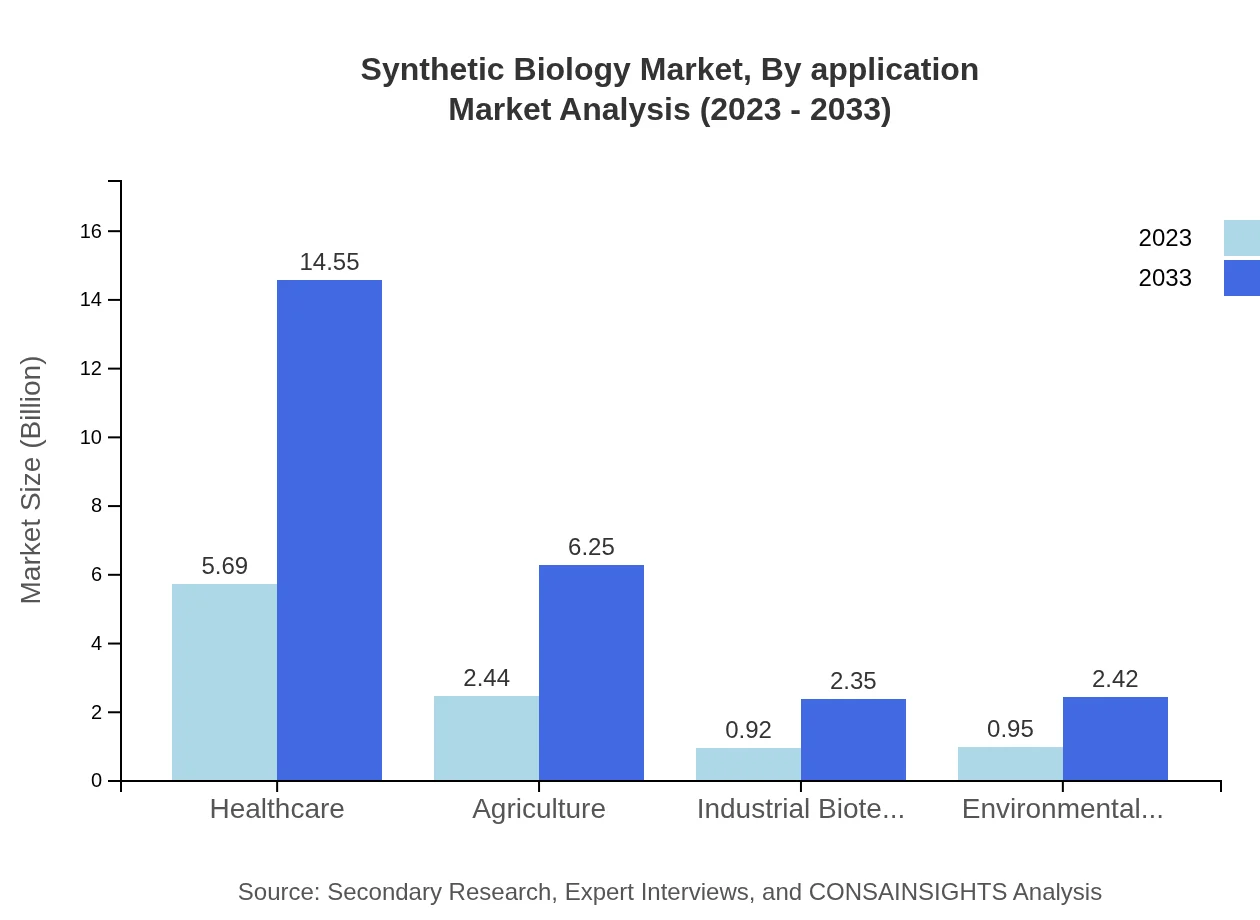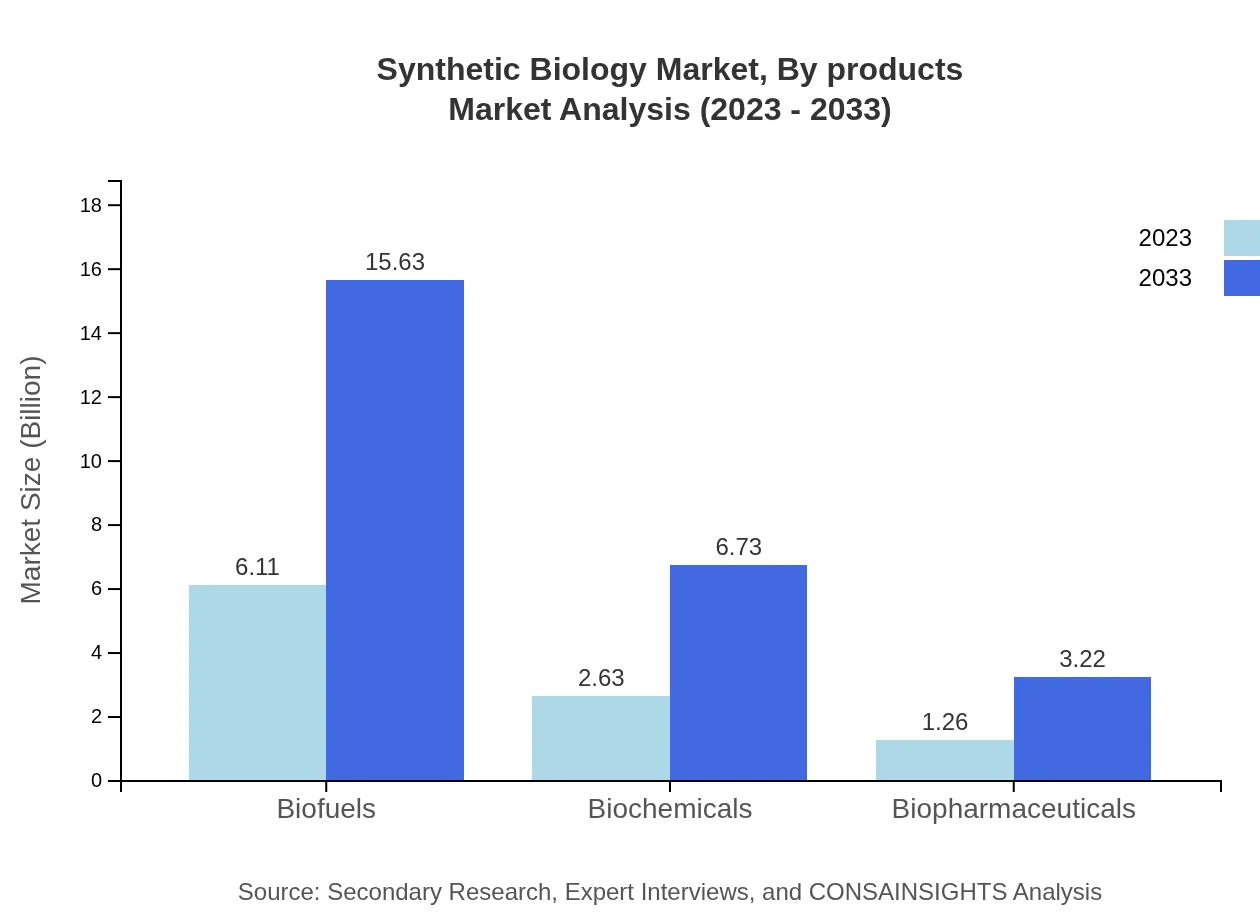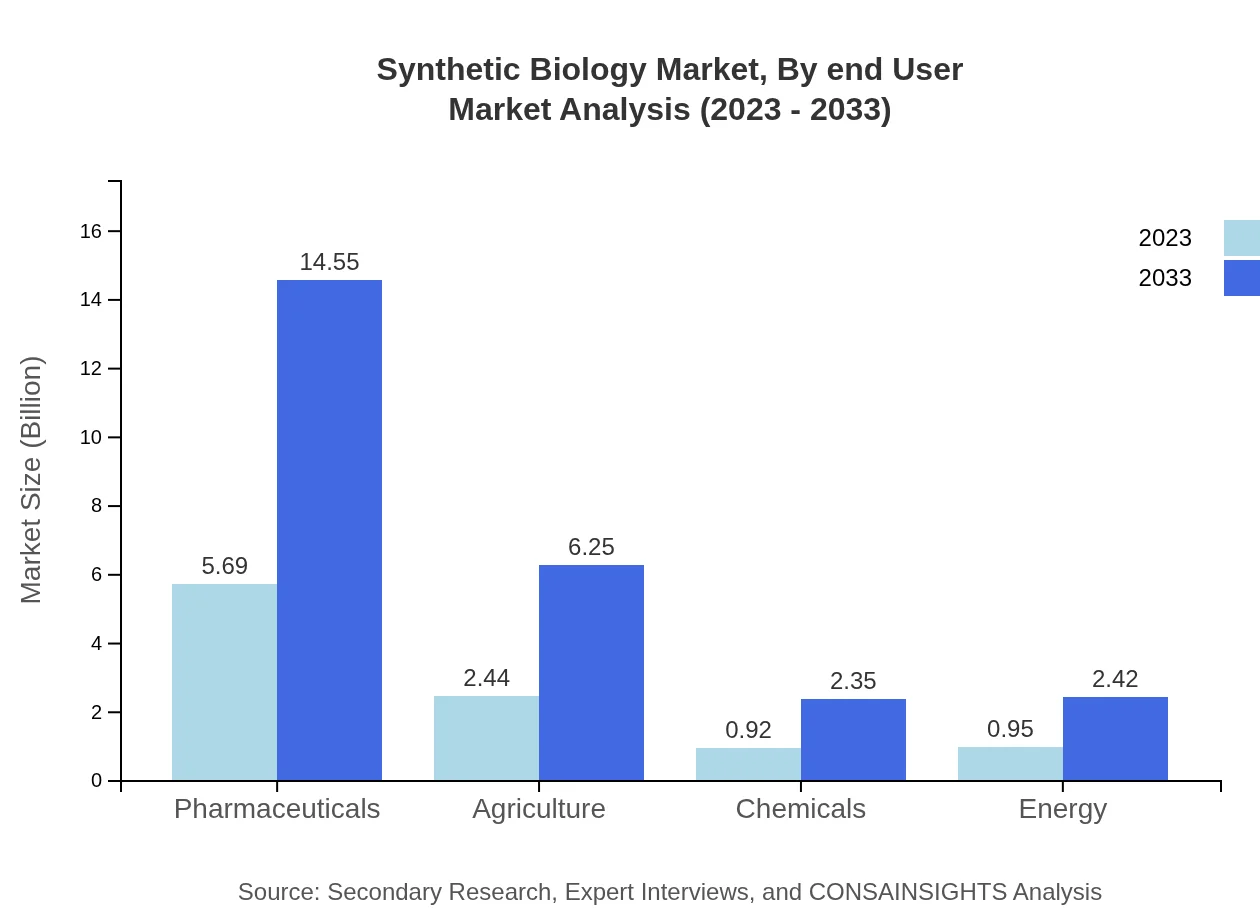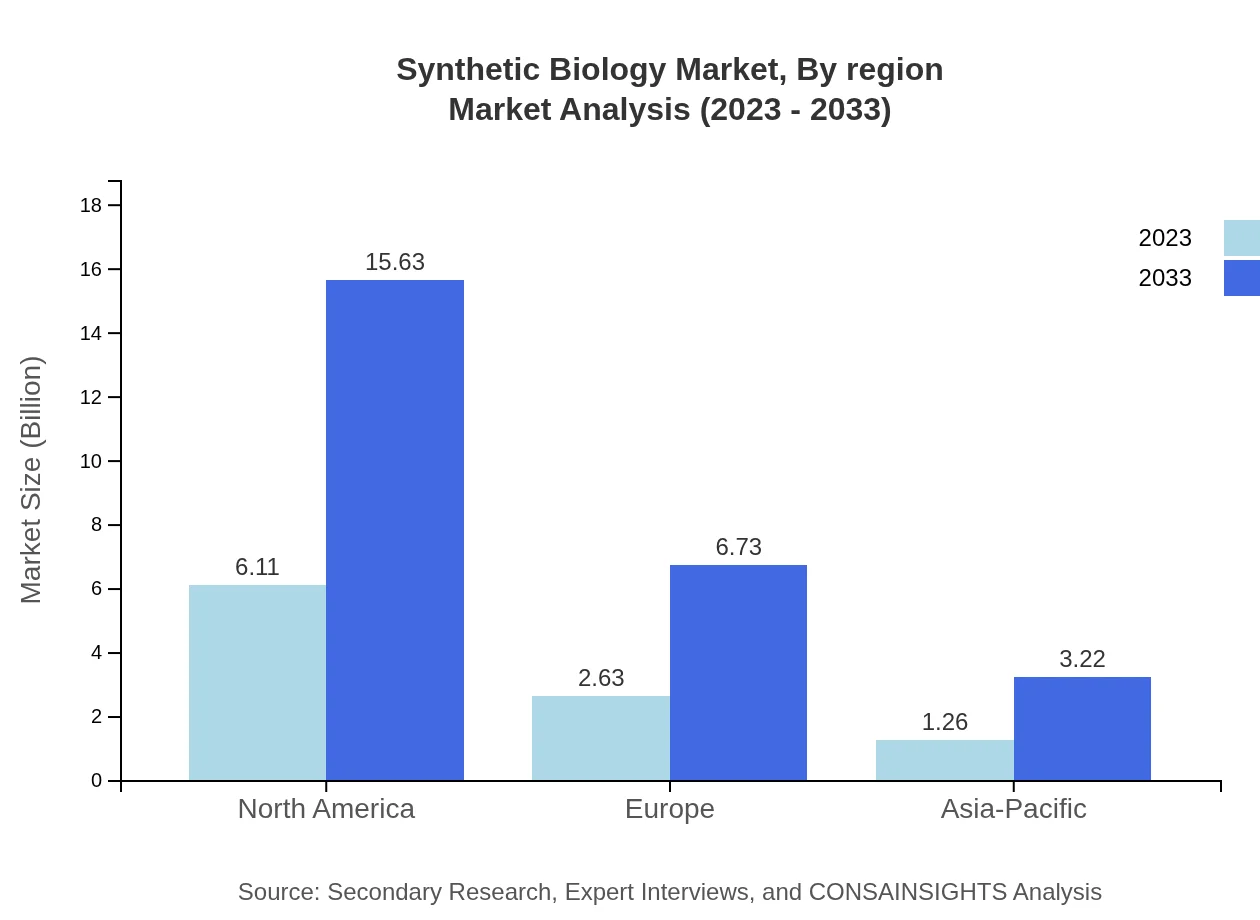Synthetic Biology Market Report
Published Date: 31 January 2026 | Report Code: synthetic-biology
Synthetic Biology Market Size, Share, Industry Trends and Forecast to 2033
This report provides an in-depth analysis of the Synthetic Biology market, focusing on market trends, growth forecasts, and segmentation from 2023 to 2033. It includes detailed insights into regional dynamics and key industry players.
| Metric | Value |
|---|---|
| Study Period | 2023 - 2033 |
| 2023 Market Size | $10.00 Billion |
| CAGR (2023-2033) | 9.5% |
| 2033 Market Size | $25.58 Billion |
| Top Companies | Amgen Inc., Ginkgo Bioworks, Synthetic Genomics, Inc., Novozymes A/S, Zymergen |
| Last Modified Date | 31 January 2026 |
Synthetic Biology Market Overview
Customize Synthetic Biology Market Report market research report
- ✔ Get in-depth analysis of Synthetic Biology market size, growth, and forecasts.
- ✔ Understand Synthetic Biology's regional dynamics and industry-specific trends.
- ✔ Identify potential applications, end-user demand, and growth segments in Synthetic Biology
What is the Market Size & CAGR of Synthetic Biology market in 2023?
Synthetic Biology Industry Analysis
Synthetic Biology Market Segmentation and Scope
Tell us your focus area and get a customized research report.
Synthetic Biology Market Analysis Report by Region
Europe Synthetic Biology Market Report:
Europe's market size was $2.79 billion in 2023, projected to grow to $7.14 billion by 2033. Strong regulatory frameworks and investments in environmentally-friendly technologies enhance the region's market prospects.Asia Pacific Synthetic Biology Market Report:
In 2023, the Asia-Pacific Synthetic Biology market was valued at $1.91 billion, projected to grow to $4.90 billion by 2033. High investments in biotechnology and government initiatives for sustainable agricultural practices are key growth factors.North America Synthetic Biology Market Report:
Leading the market, North America recorded a valuation of $3.79 billion in 2023, with predictions of reaching $9.69 billion by 2033. The presence of major biotech firms and substantial funding for research underpins this robust growth.South America Synthetic Biology Market Report:
The South American market was valued at $0.55 billion in 2023 and is expected to reach $1.39 billion by 2033. Increasing agricultural activities and interest in biopharmaceutical development are driving this growth.Middle East & Africa Synthetic Biology Market Report:
This region reported a market size of $0.96 billion in 2023, with expected growth to $2.46 billion by 2033. Increasing adoption of biotechnological methods in agriculture and environmental management drives growth here.Tell us your focus area and get a customized research report.
Synthetic Biology Market Analysis By Technology
Key technologies include genetic engineering, bioinformatics, synthetic genomics, and industrial biotechnology. Genetic engineering holds the largest share, while bioinformatics supports data-driven decisions.
Synthetic Biology Market Analysis By Application
The Pharmaceuticals segment leads with a market size of $5.69 billion in 2023, attributed to advancements in drug development. Other notable applications include biofuels, agriculture, and environmental monitoring.
Synthetic Biology Market Analysis By Products
Products in high demand include biochemicals, biofuels, and pharmaceuticals, which are essential for new market developments and sustainability strategies.
Synthetic Biology Market Analysis By End User
End-users span various sectors such as healthcare, agriculture, and energy. The healthcare sector is the largest, representing about 56.87% of the market share in 2023.
Synthetic Biology Market Analysis By Region
Regional analysis highlights the diversification of growth opportunities, with North America leading and clear emerging prospects in Asia-Pacific and Europe, driven by technological advancements and regulatory support.
Synthetic Biology Market Trends and Future Forecast
Tell us your focus area and get a customized research report.
Global Market Leaders and Top Companies in Synthetic Biology Industry
Amgen Inc.:
A biopharmaceutical company focusing on genetics and molecular biology to develop innovative therapeutic solutions.Ginkgo Bioworks:
Specializes in designing custom microbes for businesses in various sectors, leveraging synthetic biology.Synthetic Genomics, Inc.:
A leader in genomic research, providing advanced solutions for customized biological products.Novozymes A/S:
Focuses on bioinnovation, creating enzyme and microbial solutions that drive sustainability in various industries.Zymergen:
Utilizes automation and machine learning in microbial research to optimize biotechnology applications.We're grateful to work with incredible clients.









FAQs
What is the market size of synthetic biology?
The global synthetic biology market is currently valued at approximately $10 billion, with a projected compound annual growth rate (CAGR) of 9.5%. It is expected to expand significantly over the next decade.
What are the key market players or companies in the synthetic biology industry?
Key players in the synthetic biology market include major biotechnology firms and pharmaceutical companies, as well as startups focused on genetic engineering and bioinformatics, providing innovative solutions in biopharmaceuticals, agriculture, and biofuels.
What are the primary factors driving the growth in the synthetic biology industry?
Growth in the synthetic biology sector is driven by advancements in technology, increasing investment in biotechnological research, rising demand for sustainable practices, and the need for innovative healthcare solutions in response to global challenges.
Which region is the fastest Growing in the synthetic biology market?
North America currently leads the market, projected to grow from $3.79 billion in 2023 to $9.69 billion by 2033. Europe follows closely with significant growth, especially in pharmaceuticals and biochemicals.
Does ConsaInsights provide customized market report data for the synthetic biology industry?
Yes, ConsaInsights offers customized market reports tailored to specific needs within the synthetic biology industry, providing in-depth analysis and insights to help businesses make informed decisions.
What deliverables can I expect from this synthetic biology market research project?
Expect comprehensive deliverables including market insights, segmentation analysis, regional forecasts, competitive landscape assessments, and actionable recommendations tailored to the synthetic biology industry.
What are the market trends of synthetic biology?
Current trends in synthetic biology include increasing integration of AI in research, heightened focus on sustainable agricultural practices, advancements in gene editing technologies, and a growing demand for biopharmaceutical innovations.

